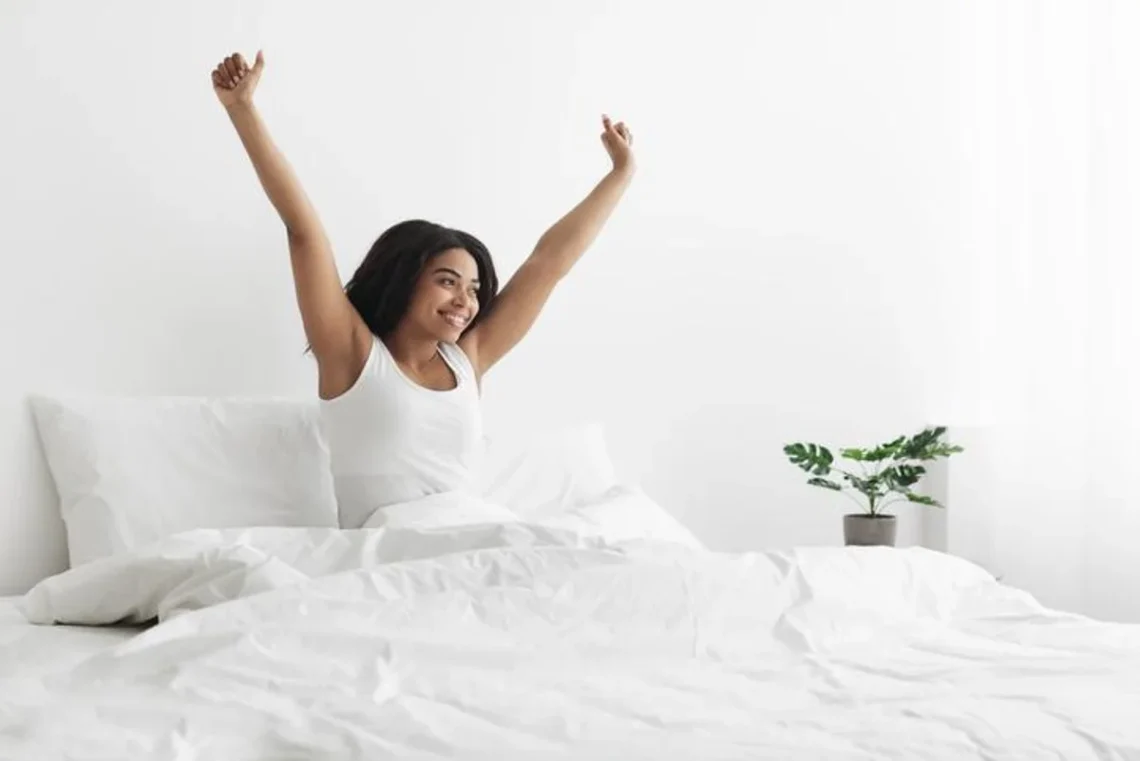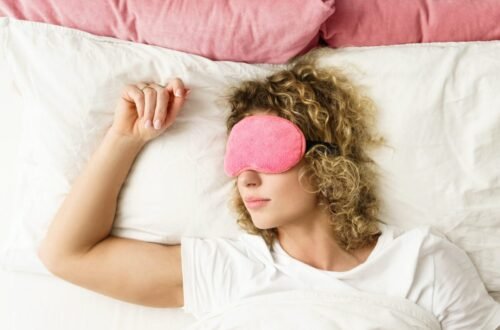Why Sleep Is the Unsung Hero of Health
Good quality sleep is the foundation of a healthy, vibrant life, yet it’s often the first thing we sacrifice in our busy schedules. From boosting brain function to strengthening immunity, sleep powers every system in our body. This article dives into why prioritizing sleep is non-negotiable, sharing practical tips and personal stories to help you reclaim those precious Z’s. Let’s explore how a good night’s rest can transform your life, one dream at a time.
The Science of Sleep
What Happens When You Sleep?
During sleep, your body repairs tissues, consolidates memories, and regulates hormones. The brain cycles through stages—light sleep, deep sleep, and REM—each serving unique functions like muscle recovery and emotional processing. Skimp on sleep, and you disrupt this delicate dance, leading to foggy thinking and weakened health.
Sleep Stages and Their Roles
Sleep unfolds in four stages: N1 (light), N2 (deeper), N3 (deep/slow-wave), and REM (dreaming). Deep sleep restores the body, while REM sharpens memory and creativity. A 2023 study in Sleep journal found that 7–9 hours of balanced cycles optimizes cognitive performance.
The Consequences of Poor Sleep
Chronic sleep deprivation increases risks of obesity, diabetes, and heart disease by 30–50%, per the CDC. It also impairs focus, mood, and immunity, making you more susceptible to stress and illness. Missing even one hour nightly can snowball into serious health issues over time.
Health Benefits of Quality Sleep
Boosting Brain Power
Sleep enhances memory, problem-solving, and focus. A 2024 Harvard study showed that 8 hours of sleep improved decision-making by 20% compared to 5 hours. Ever nailed a presentation after a great night’s rest? That’s your brain thanking you for those extra hours.
Strengthening Immunity
Sleep bolsters your immune system by increasing T-cell production, which fights infections. During the 2020 pandemic, sleep-deprived individuals were 25% more likely to catch respiratory viruses, per Nature. Good sleep is like armor against colds and flu.
Supporting Mental Health
Quality sleep regulates emotions and reduces anxiety. A 2023 Journal of Affective Disorders study linked 7+ hours of sleep to a 40% lower risk of depression. When I started prioritizing sleep, my mood swings vanished, and I felt ready to tackle life’s challenges.
Enhancing Physical Performance
Athletes rely on sleep for muscle recovery and coordination. A 2022 Stanford study found that athletes sleeping 8 hours improved sprint times by 0.7 seconds versus 6 hours. Whether you’re hitting the gym or chasing kids, sleep fuels your energy.
Factors That Disrupt Sleep Quality
Screen Time and Blue Light
Blue light from phones and laptops suppresses melatonin, the sleep hormone, delaying sleep onset by up to 2 hours. A 2024 Sleep Medicine study found that cutting screen time an hour before bed improved sleep quality by 30%. That Netflix binge might cost you more than you think.
Stress and Anxiety
Chronic stress floods your body with cortisol, keeping you wired at night. Over 50% of insomnia cases are tied to anxiety, per the National Sleep Foundation. I’ve tossed and turned over work deadlines, only to learn that a bedtime routine can calm the mind.
Poor Sleep Environment
A noisy, warm, or cluttered bedroom disrupts sleep. Ideal conditions include a cool 60–67°F room, darkness, and minimal noise, per the Sleep Research Society. Swapping my old mattress for a supportive one transformed my restless nights.
Diet and Lifestyle Choices
Caffeine, alcohol, and heavy meals close to bedtime can sabotage sleep. A 2023 Nutrients study showed that caffeine after 2 p.m. delayed sleep by 45 minutes. Eating light and avoiding stimulants late in the day sets the stage for restful slumber.
Practical Tips for Better Sleep
Create a Consistent Sleep Schedule
Going to bed and waking up at the same time daily regulates your circadian rhythm. Even on weekends, aim to stick within a 30-minute window. After syncing my schedule to 10 p.m.–6 a.m., I woke up feeling refreshed, not groggy.
Optimize Your Sleep Environment
Use blackout curtains, a white noise machine, and a comfortable mattress to create a sleep sanctuary. The National Sleep Foundation recommends a firmness level of 5–7 out of 10 for most adults. My new cooling pillow was a game-changer for hot summer nights.
Limit Screen Time Before Bed
Avoid screens at least an hour before bed to boost melatonin production. Try reading or journaling instead—my nightly book habit cut my fall-asleep time in half. Apps like f.lux can also reduce blue light if you must use devices.
Practice Relaxation Techniques
Meditation, deep breathing, or progressive muscle relaxation can ease you into sleep. A 2024 Sleep study found that 10 minutes of mindfulness reduced insomnia symptoms by 25%. A simple breathing exercise helped me quiet my racing thoughts.
Watch Your Diet and Exercise
Eat light dinners and avoid caffeine or alcohol after 6 p.m. Regular exercise, like 30 minutes of walking, improves sleep quality, but avoid intense workouts within 3 hours of bedtime. These tweaks made my nights more restful and my days more energized.
Comparing Sleep Aids
| Sleep Aid | Benefits | Drawbacks |
|---|---|---|
| Melatonin Supplements | Helps regulate sleep; effective for jet lag | Possible grogginess; not for long-term use |
| White Noise Machines | Masks disruptive sounds; promotes calm | May not work for all; device cost |
| Sleep Tracking Apps | Monitors sleep patterns; offers insights | Requires device; data privacy concerns |
| Weighted Blankets | Reduces anxiety; promotes deep sleep | Heavy; not ideal for hot sleepers |
Pros and Cons of Improving Sleep
Pros:
- Enhances focus, mood, and physical health.
- Reduces risk of chronic diseases like diabetes.
- Boosts productivity and creativity.
Cons:
- Requires lifestyle changes, like cutting evening coffee.
- Initial costs for mattresses or sleep aids.
- Consistency takes discipline, especially with busy schedules.
Personal Story: Rediscovering Sleep
A few years ago, I was burning the candle at both ends—late nights working, early mornings rushing. My sleep was a mess, and I felt like a zombie. Then, a friend recommended a simple bedtime routine: no screens, a warm shower, and a book. Within a week, I was sleeping 7 hours straight, waking up with energy I hadn’t felt in years. That small change showed me sleep isn’t a luxury—it’s a lifeline.
Tools and Resources for Better Sleep
Best Sleep Tracking Apps
- Sleep Cycle: Tracks sleep stages via phone sensors, $39.99/year at www.sleepcycle.com.
- Fitbit Sleep Tracker: Monitors heart rate and sleep, included with Fitbit devices.
- Oura Ring: Wearable for detailed sleep insights, $299 at www.ouraring.com.
Where to Find Sleep Products
Retailers like Amazon and Bed Bath & Beyond offer mattresses, blackout curtains, and white noise machines. Visit www.amazon.com or www.bedbathandbeyond.com for deals and reviews.
Educational Resources
The National Sleep Foundation and CDC provide free guides on sleep hygiene. Check www.sleepfoundation.org for tips or www.cdc.gov/sleep for health insights.
People Also Ask (PAA)
Why is good quality sleep important?
Good sleep boosts brain function, immunity, and emotional health while reducing risks of chronic diseases. It improves focus, mood, and productivity, with studies showing 7–9 hours cuts depression risk by 40%.
How much sleep do I need?
Adults need 7–9 hours nightly, per the National Sleep Foundation. Children require 9–11 hours, and seniors may need 7–8. Consistent sleep schedules maximize benefits across age groups.
What are the best tools for improving sleep?
Sleep trackers like Oura Ring, white noise machines, and blackout curtains enhance sleep quality. Apps like Sleep Cycle offer insights. Find products at www.amazon.com.
How can I improve my sleep quality?
Stick to a consistent schedule, limit screens before bed, and create a cool, dark bedroom. Relaxation techniques like meditation and avoiding late caffeine also help, per Sleep Medicine.
FAQ Section
What is good quality sleep?
Good quality sleep involves 7–9 hours of uninterrupted rest, cycling through all sleep stages (light, deep, REM). It leaves you refreshed, focused, and energized, supporting overall health.
How does sleep affect mental health?
Sleep regulates emotions and reduces stress hormones. Getting 7+ hours lowers anxiety and depression risk by up to 40%, while poor sleep can worsen mood disorders, per Journal of Affective Disorders.
What’s the best mattress for sleep?
A medium-firm mattress (5–7/10 firmness) suits most sleepers, per the Sleep Research Society. Brands like Tempur-Pedic or Casper offer options. Check www.casper.com for reviews.
Can diet impact sleep quality?
Yes, heavy meals, caffeine, or alcohol near bedtime disrupt sleep. A 2023 Nutrients study found caffeine after 2 p.m. delays sleep by 45 minutes. Eat light and avoid stimulants late.
Where can I learn more about sleep hygiene?
The National Sleep Foundation offers guides on sleep routines and environments. Visit www.sleepfoundation.org or www.cdc.gov/sleep for expert advice.
A Wake-Up Call for Better Sleep
Good quality sleep isn’t just about feeling rested—it’s about unlocking your best self. From sharper focus to stronger immunity, the benefits are undeniable. Start small: try a no-screen hour before bed or a cozy new pillow. Your body and mind will thank you. Dive into resources at www.sleepfoundation.org and make sleep your superpower today.





